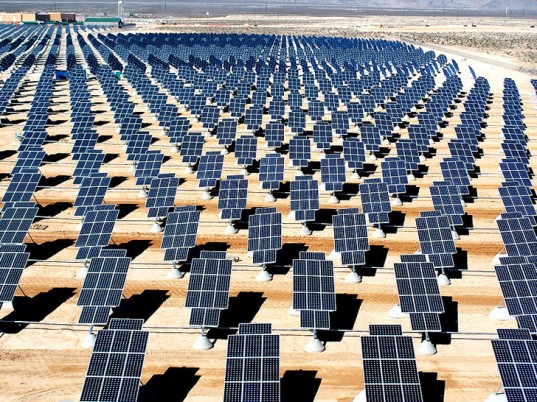A bill requiring utilities to purchase renewable energy at fixed prices is now expected to pass in the Diet. While many challenges still lie ahead, the establishment of a sustainable energy system is something that Japan cannot avoid, and we throw our support behind the development.
According to the proposed bill, utilities will buy electricity generated from renewable energy sources such as solar, wind and geothermal power, the cost of which utilities can then add to consumers’ electricity bills. Utilities heretofore have bought only surplus energy from home solar systems, but passage of the bill will require utilities to purchase electricity generated by outside providers solely for sales purposes as well.

The original goal of the bill was to curb the emission of greenhouse gases. However, after the March 11 Great East Japan Earthquake and tsunami triggered a nuclear crisis at the Fukushima No. 1 Nuclear Power Plant, the bill took on a whole new meaning. As circumstances today differ drastically from when the bill was first drawn up, it’s only natural that the bill has been revised.
The prices at which utilities will purchase electricity will be based on deliberations conducted by a third-party commission, whose members must be endorsed by the Diet. A new proviso has also been added to the bill ensuring the implementation of measures to aid industries that consume large quantities of electricity.
Both maintaining transparency in the process by which electricity prices are set and offering special considerations for industries that will be greatly affected by the developments are crucial.
Prices must be set high enough to provide an incentive for private corporations and other parties to break into the business of energy generation. If set too high, however, the new electricity surcharges could pose too much of a burden on large-scale energy consumers, which may then result in the hollowing out of industry and increased unemployment. As such, prices must strike the right balance.
The unstable supply and the varied voltages and frequencies of solar- and wind-based energy are an additional concern. Furthermore, as the power distribution networks currently used by individual utilities will not be sufficient to accommodate the new energy system, arrangements such as the widespread use of various power distribution networks must be made.
The strategy of initially storing generated electricity in batteries set up by households and businesses before stabilizing the energy is another way to expand the use of renewable energy.

Although one of the original motivations behind the increased use of renewable energy sources had been the reduction of greenhouse gases, in light of the nuclear disaster and the nuclear power plants that are currently not in operation as a result, we have no choice but to increase our use of fossil fuels such as oil, natural gas and coal for the time being. This means we have a huge task ahead of us: reducing our dependence on nuclear power while also aiming to reduce the emission of greenhouse gases.
Realizing the widespread use of electricity generated from renewable sources is something we cannot postpone. And we must not forget that adopting the new energy system will promote the growth of new business opportunities, including the creation of a smart grid — the digitization of electrical grids through collaboration with the communications industry.
We hope to continue promoting the expansion of renewable energy, along with energy conservation and related policies.

 Follow
Follow